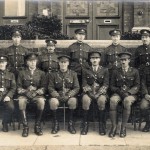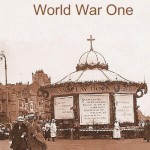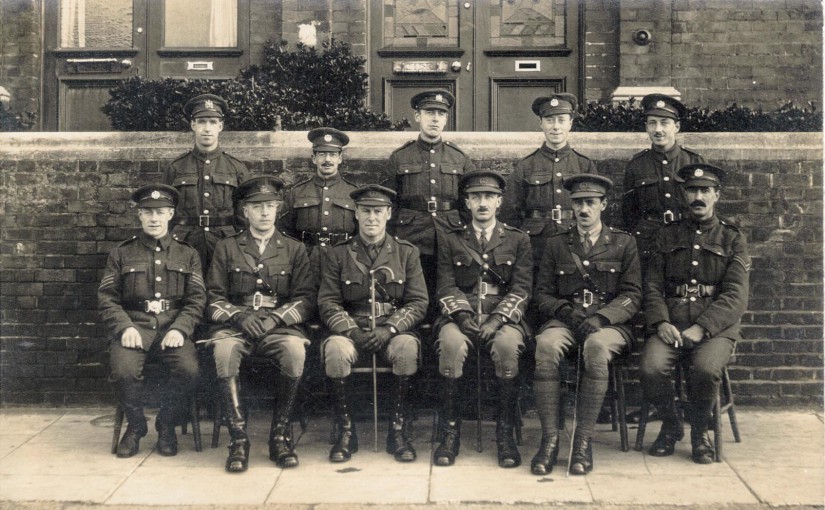By Brian Lawes
Early in the War billeting troops was a contentious issue in Hastings. In a survey of rate payers it showed that of the replies received, only 2,024 ratepayers were in favour of the billeting of troops, six against, and six were neutral. The Borough Council had decided “not take any action owing to the apathy of the ratepayers on the question”. By November attitudes had both changed and polarised when Councillor Cox observed “They were desirous of maintaining their prestige as a winter resort, and at the same time there was another section desirous of getting troops.
He thought they could do both!” The dilemma being that the larger hotels wished to keep the town as a desirable holiday destination, and free from thousands of troops. On the whole their traditional clients came from the wealthier groups of visitors who were used to a high level of service. The small guest and boarding house owners, on the other hand, were anticipating that many of their guests would no longer be wishing to come to Hastings. Their concern was many of them would have enlisted in the army whilst others would choose to take their holiday in quiet places away from the military occupation taking place on the south coast. Also in November the Health Resorts Federa-tion who r e p r e – s e n t e d seventy of the principal resorts in th e U n i t e d P a g e Eig h teen Kingdom, were neg o t ia t in g wi th th e War Office f ees f o r b i l l e t i n g t r o o p s . They were s e e k i n g accommodation for 2 5 0 , 0 0 0 men, and were suggesting a p a yme n t of a flat rate of 2s. 6d. per day (12½p), or 17s. 6d. per week (87½p), including laundry.
This would not have been anywhere near an acceptable level of payment to the hotels but to smaller establishments it would provide a modest income. In the early weeks it was estimated there were 700 men billeted in the town, probably either local men or those staying with friends and relatives. In November the Council was “making efforts to secure the presence of troops in Hastings” but suggested that any persons willing to take troops should signify their willingness to the Chief Constable, stating the number they were prepared to accommodate. It was said that there was a possibility of from 500 to 1,000 troops being billeted in the borough in the immediate future, and that the Chief Constable had already obtained the necessary accommodation. That turned out to be a poor estimate, for on one day alone in December 1914 six thousand troops marched into town. Another group to anticipate a drop in income were the beach photographers.
No longer could they gather together a large group of visitors, give them a ‘Having a Wonderful Time at Hastings’ board with an identifying group number chalked on, and wait for the orders. But all was not lost, as military personal were billeted here a new market became available. The chalk board could be dispensed with because regimental photos were more easily identified; large groups were still in evidence but so were individuals or small groups of officers that were clearly taken to order.
A new publication “Hastings During World War One” by Brian Lawes and the Hastings Local History Group” is well illustrated. Price £7. It is available from the History House 21 Courthouse Street open on Thursday to Sunday 11 to 4pm, The Fishermans Museum, Rock-A-Nore Road and the Hastings Museum and Art Gallery Johns Place, Bohemia Road.
“Hastings Town” December 2015
All articles, photographs, films and drawings on this web site are World Copyright Protected. No reproduction for publication without prior arrangement. © World Copyright 2015 Cinque Ports Magazines Rye Ltd., Guinea Hall Lodge Sellindge TN25 6EG
